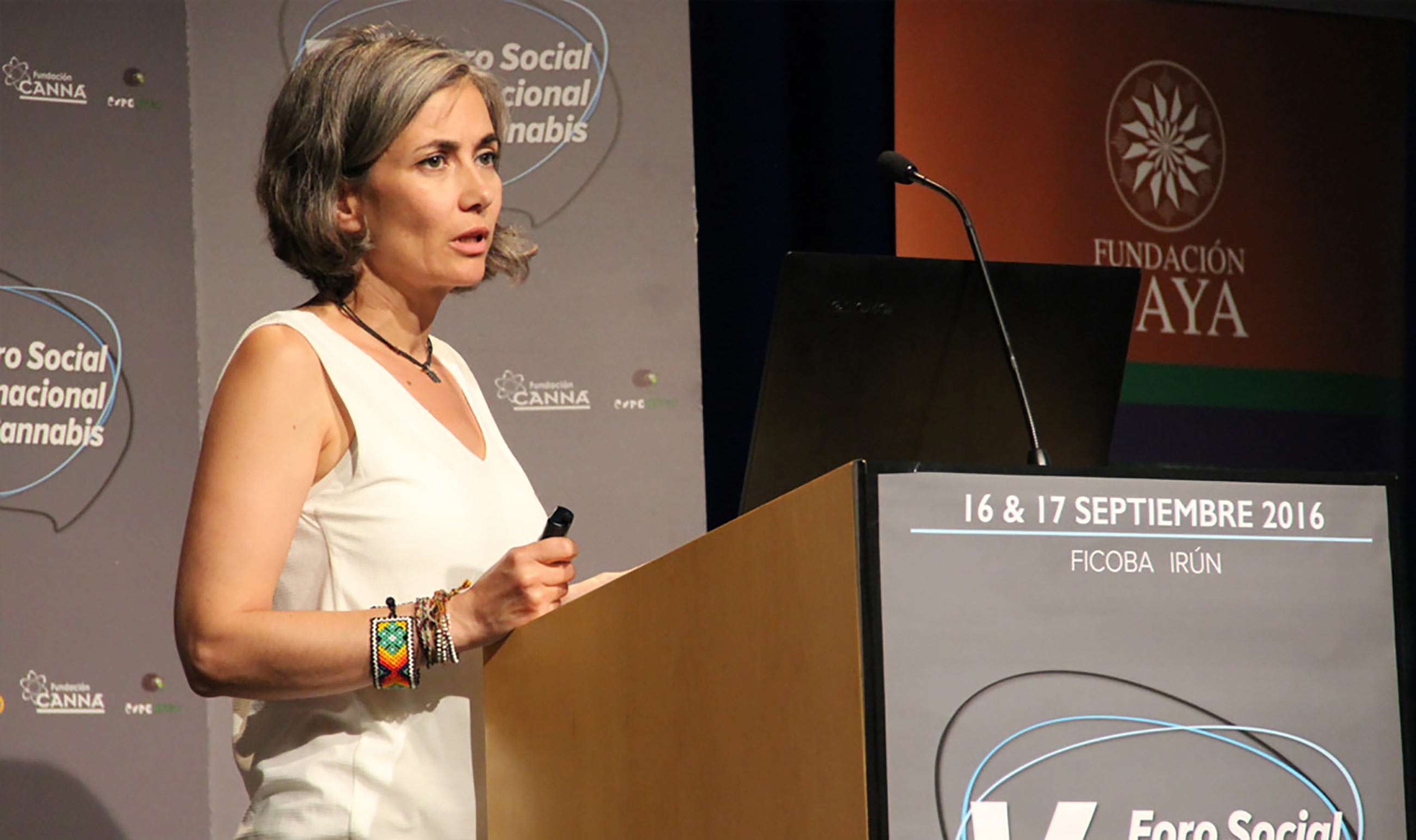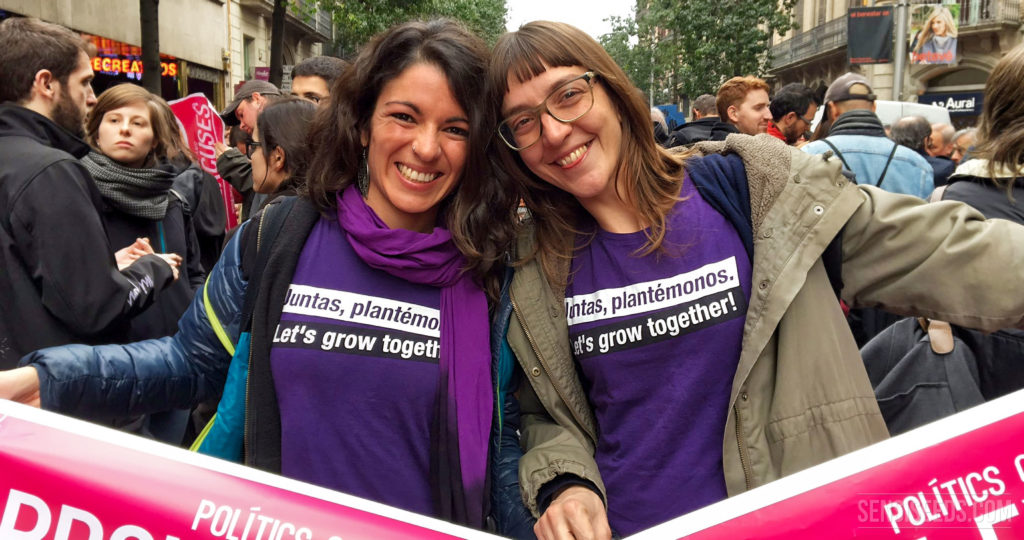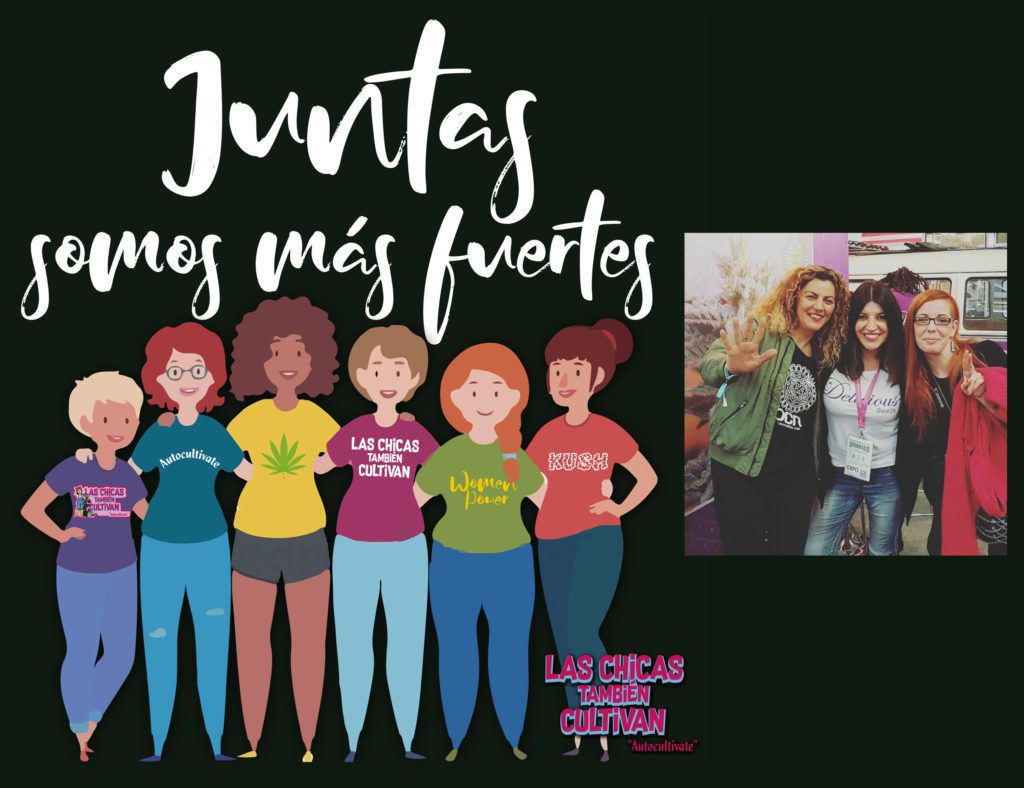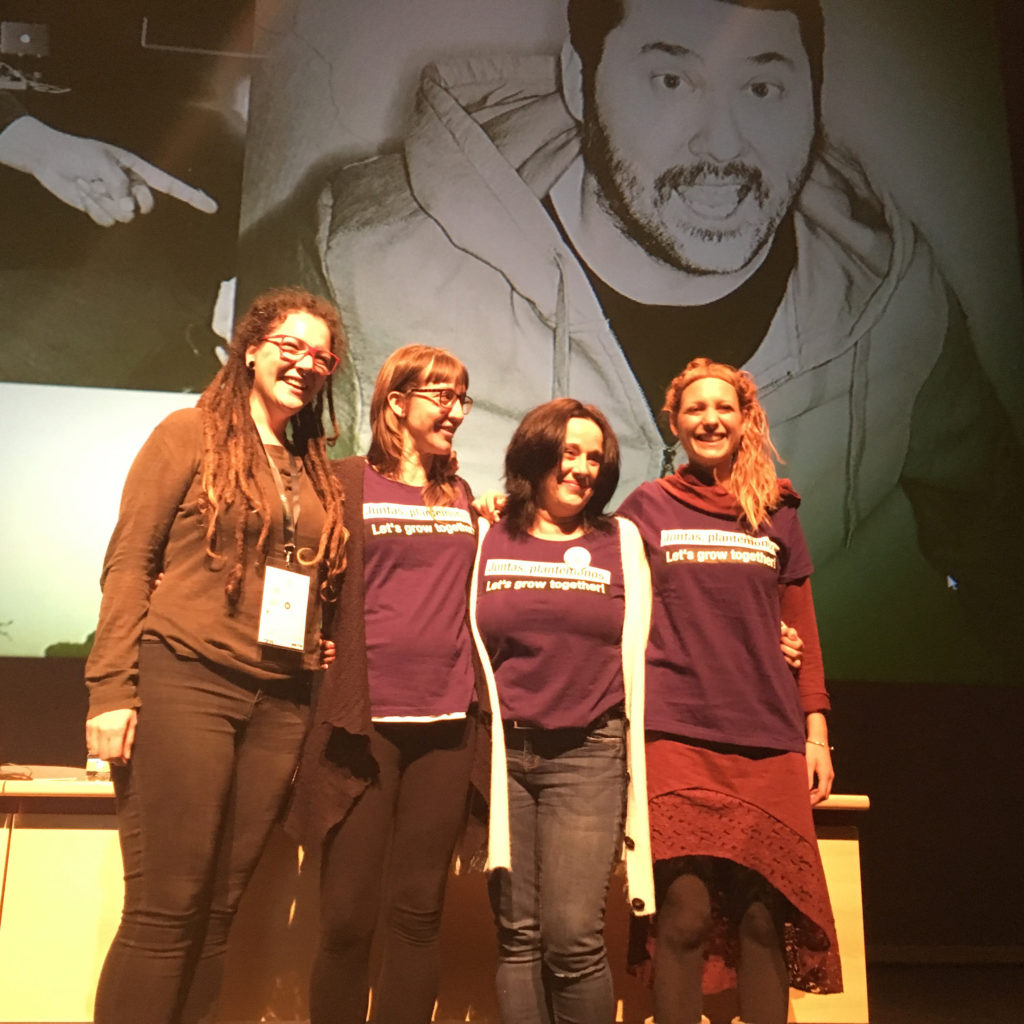For decades, Spanish women have been quietly advancing cannabis legalization and normalization via legal initiatives, medical marijuana research, private cultivation, political lobbying, activism and more. These women of weed want to overhaul Spain’s drug laws and restrictive policies to ensure a safe, inclusive and representative consumption environment for everyone.
Spanish Women in Medical Marijuana – Dr. Cristina Sanchez
One of the most prominent names on the world’s medical marijuana stage is Dr. Cristina Sanchez, a molecular biologist from Complutense University in Madrid who discovered the anti-tumoral properties of cannabis.
Fascinated by the work of the Israeli scientist Raphael Mechoulam who discovered tetrahydrocannabinol (THC), the chemical unique to marijuana that causes the psychotropic “high,” in the 1990s, Sanchez and her team set out to discover how the compound worked.

While studying THC they found that it killed cancer cells by prompting them to commit suicide. In this video, which is more than ten years old, Sanchez talks enthusiastically about the potential of THC as a cancer treatment: “One of the advantages of cannabinoid-based medicines is that they target specifically tumor cells, and don’t have any toxic effect on non-tumor cells,” she says.
Proving that she’s way ahead of her time, she goes on to talk about cannabidiol or as it’s more popularly known, CBD, and its anti-oxidant properties that can “protect the brain from stress and damage.” Today, CBD is the hottest compound on the cannabis market though the Drug Enforcement Administration (DEA) in America continues to debate its legal status.
Like a true pioneer, Sanchez was talking about its medical potential ten years ago. Today, she sits on the board of the Spanish Observatory for Medical Cannabis (OEDCM) and speaks at conferences from Prague to Chile, promoting marijuana’s anti-tumor properties.
Carola Pérez about
Very often it’s personal experiences that draw women into the world of cannabis and that was the case for Carola Pérez. She is the founder of the OEDCM and another organization, Dosemociones, that offers advice on the therapeutic uses of cannabis, the first advice service of its kind in Spain, set up in 2014. Carola was injured in a fall at the age of 11, fracturing her tailbone, and leaving her in chronic pain for the rest of her life.
When she first became interested in cannabis, she was searching for relief from pain but found that many of the people she spoke with didn’t have the answers she needed. So she started to do her own research, which is how she began to connect with some of the most important cannabis researchers in the world, women such as Dr. Cristina Sanchez.
Today, through the organizations she’s created, she provides information on the therapeutic properties of cannabis to the sick people who need it most.
Spanish Women Grow Too
Claiming a space for women in the cannabis sector is the idea behind Las Chicas Tambien Cultivan (Women Grow Too), an online initiative by three women, Maria Barragans, Gemma Burgos, and Davinia Hidalgo Mateo, to foster an environment where women can cultivate marijuana without fear of judgment.
Between them, they have decades of experience in the cannabis sector; Gemma, for example, opened the first grow shop to sell seeds in Spain with her husband in 1999. Maria has a blog, Con M de Maria, where she explores the connection between women and weed.
When the women met three years ago at an industry event, “another cannabis cup where all the prizes went to men,” they decided it was time to do more to challenge stoner stereotypes. “The reality is that there is no one kind of cannabis user,” says Gemma. “We are hard working professional women with good intentions and families, just living our lives and cannabis happens to be part of it.”
The lack of brands and services targeting women is a big concern for Las Chicas. “As a cannabis user and cultivator, I don’t feel the industry represents my tastes or preferences,” says Davinia. “I don’t identify with the advertising campaigns and don’t see products that appeal to me.” To tackle this problem, they are creating an online platform to represent the “voice and interests” of women.
“We want to show real and diverse images of female cultivators and consumers, and in so doing, demonstrate how different it is from the image the industry portrays of us,” adds Maria. Their campaign hashtag is #Juntassomosmásfuerte (Together we are stronger.)
On the topic of female cultivators, a special mention goes to a woman who recently shook up Spain’s cannabis world by winning all of the Cannabis Cup prizes at Seville’s Expocañamo.
Not much is known about this marijuana gal just yet as she keeps a low profile, but she goes by the moniker La Flaca, and is connected to The Plug cannabis social club in Barcelona. If she keeps cleaning up at Cannabis Cups around the country the way she did in Seville, she could be the catalyst that inspires a generation of young women to start cultivating.
Spanish Women in Cannabis Industry and Activism
Susana Soto is a lawyer who was instrumental in shaping Spain’s cannabis social club (CSC) model. In the late 1990s, when it became obvious that Spain’s CSCs needed regulatory framework to support their growth, the regional government of Andalusia commissioned a judicial report, and Soto was one of its authors. The report concluded that CSCs should not be open to the public, and would be “places of private consumption” that control “access” amongst “regular users.”
Though this report was not legally binding, its concepts were adopted by the CSC movement, and led to the opening of the Barcelona Taster’s Cannabis Club in 2001, the first club to offer members a private space to smoke. Today, there are more than 800 CSCs in Spain, about 500 of which are located in Catalonia, and 300 in Barcelona.
Another woman whose initiative has done a lot to help industry standards is Susan van Brunschot. Having worked for a cannabis fertilizer company for five years, she had the idea to set up Fundación CANNA in 2011, an organization dedicated to investigating cannabis and its active compounds, maintaining the quality of strains via testing, and advancing medical marijuana research.
Today, the laboratory at Fundación CANNA has analyzed more than 6,000 strains and is the go-to lab for many of the CBD companies based in Spain who must continuously test the quality of their batches in order to meet with industry regulations (in the EU, CBD must be produced from hemp with less that 0.2% THC.)
While Susan recognizes that Spain’s cannabis world is male-dominated, and says she has sometimes found it “difficult to be heard in a room full of men,” she’s hopeful that in the future there’ll be as many women working in the industry as there are in the US.

One of the busiest women in Spain’s cannabis world is an activist called Patty Amiguet, who is a founding member of or spokesperson for a long list of lobbyist groups including Catalonia’s Federation of Cannabis Associations (CatFac), Mujeres Cannabicas, and Spain’s National Federation of Cannabis Associations (ConFac).
She’s one of the activists behind La Rosa Verde, a project that began in 2014 with the goal of collecting 67,500 signatures to petition the Catalonian government to regulate the region’s cannabis social clubs (CSC). La Rosa Verde was a success, and in June 2017, the Catalonia Law was passed as the first set of regional regulations for CSCs.
“I’m so grateful for everything the marijuana plant has given me,” says Patty, who was a recreational user before becoming an activist. Eight years ago, she opened a CSC in Barcelona with a friend, and her cannabis career skyrocketed from there. Despite her many achievements, she laments that being taken seriously is still a challenge.
“I notice that men tend not to value my opinion the same way, especially if they don’t know me,” she says, adding, “which is unfortunate because I believe we will only achieve cannabis regulation by putting egos aside and focusing on what’s best for everyone.”












